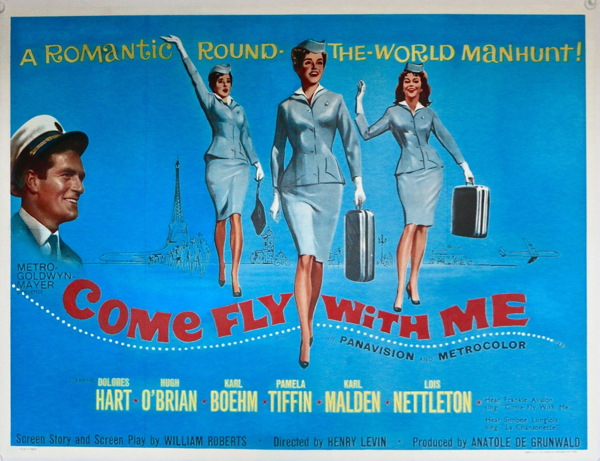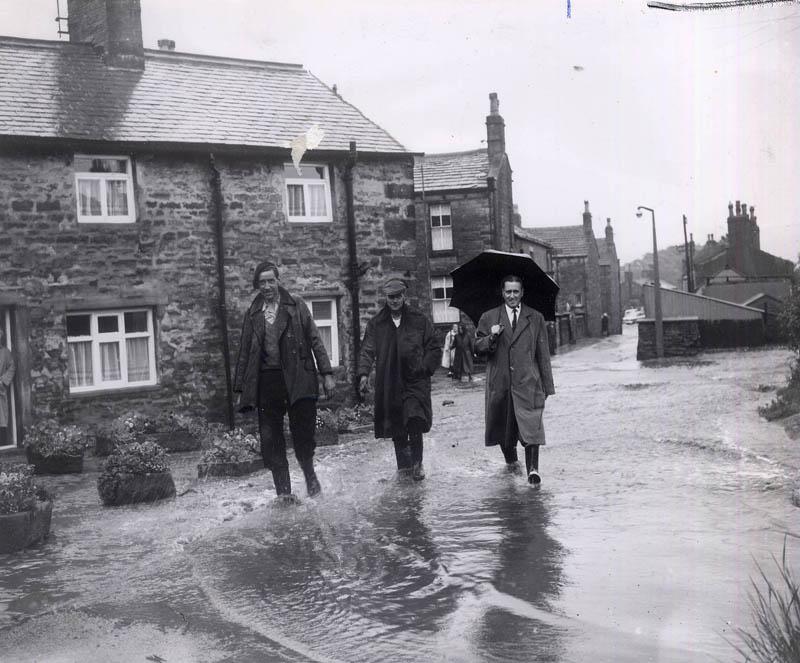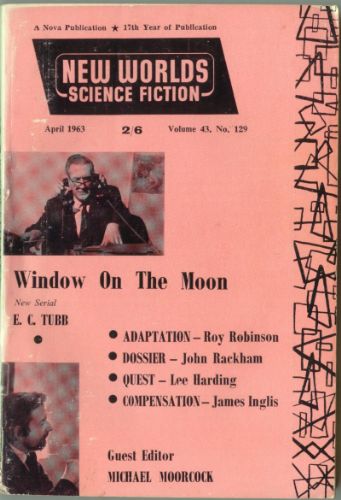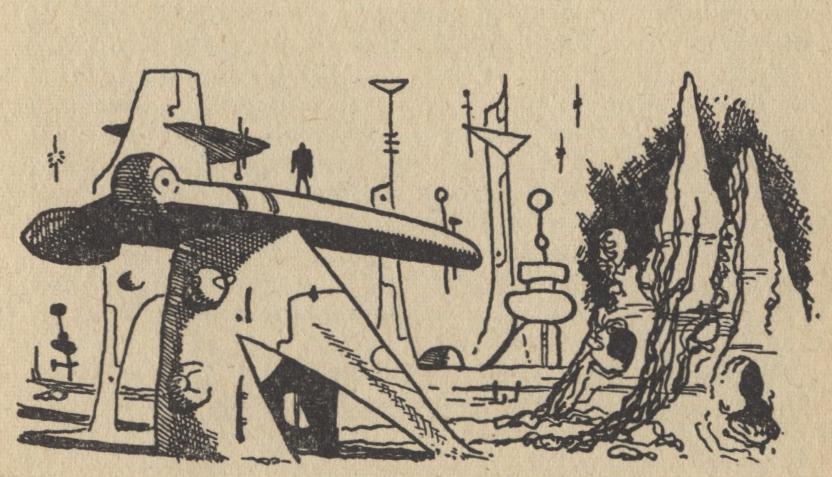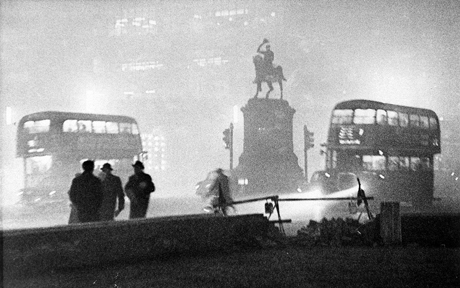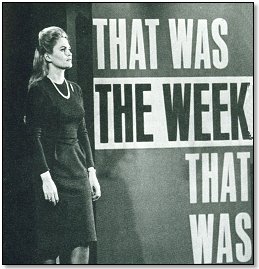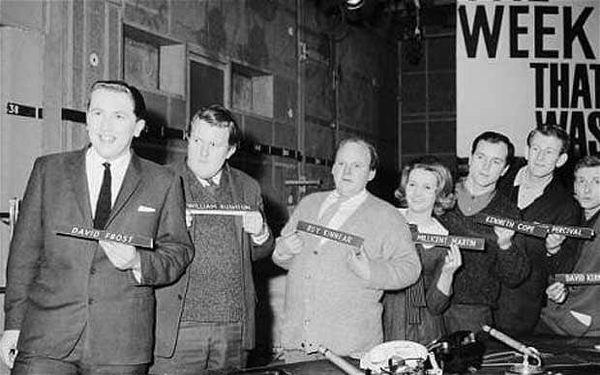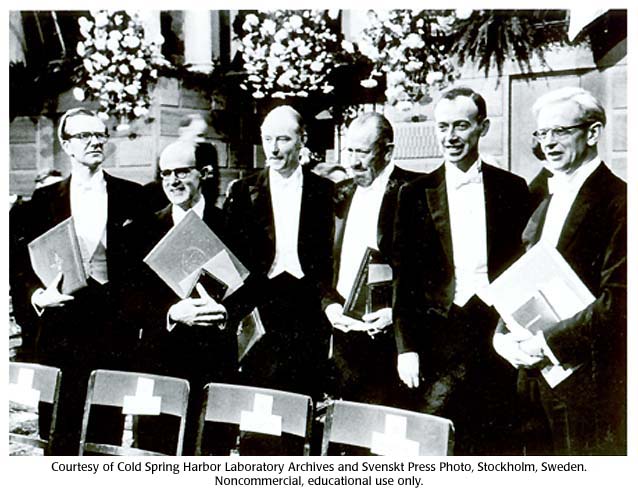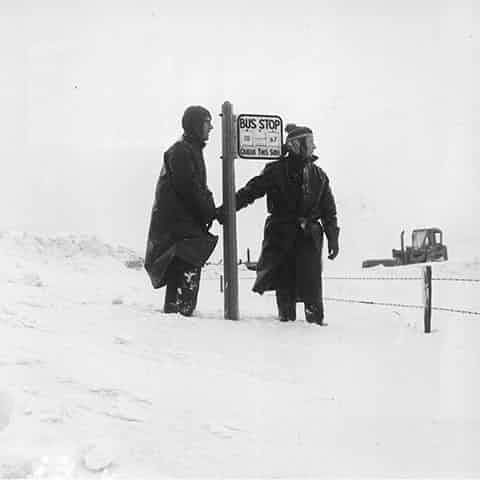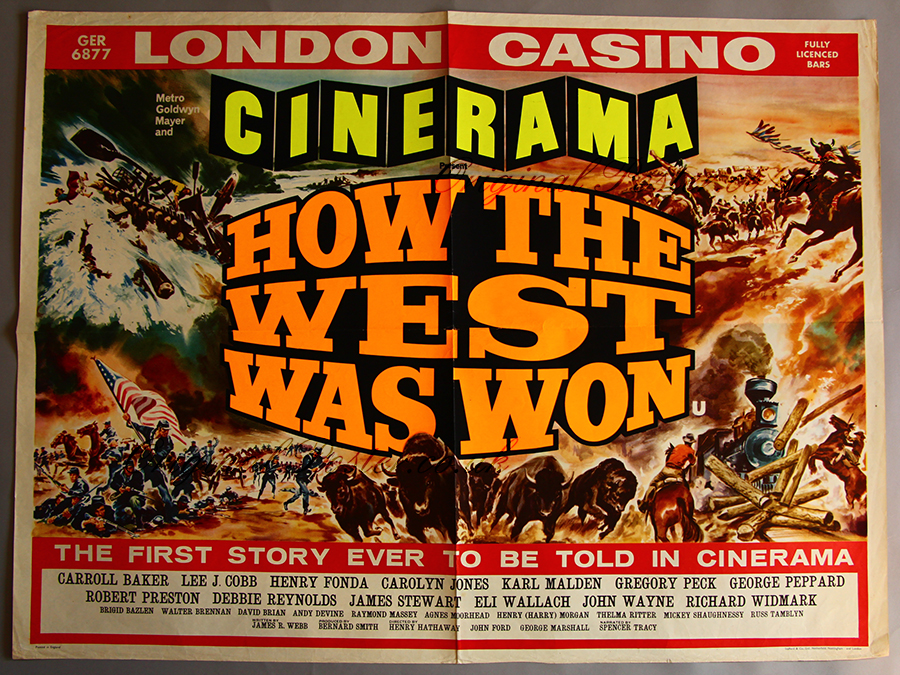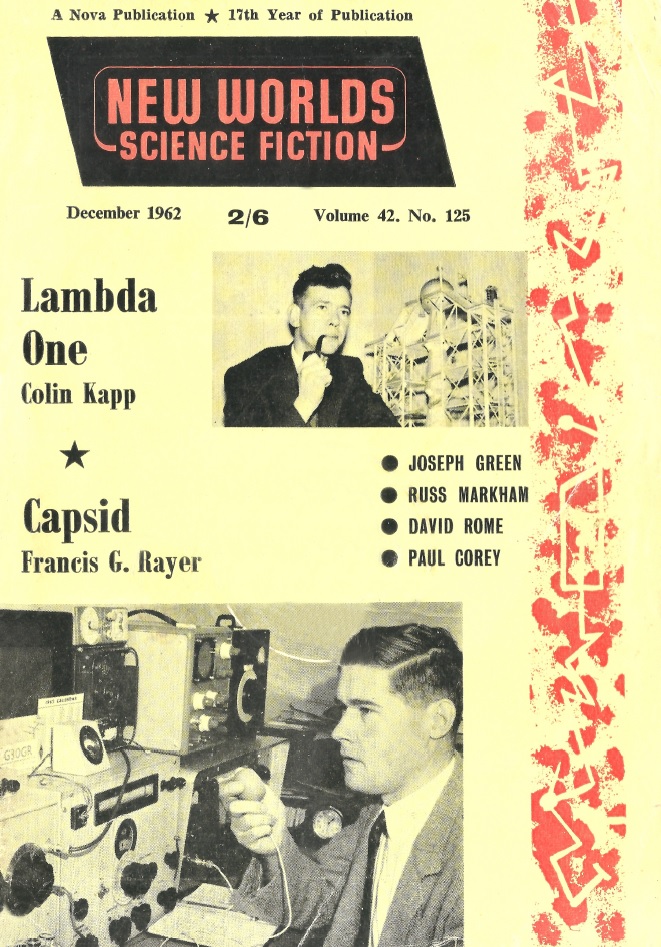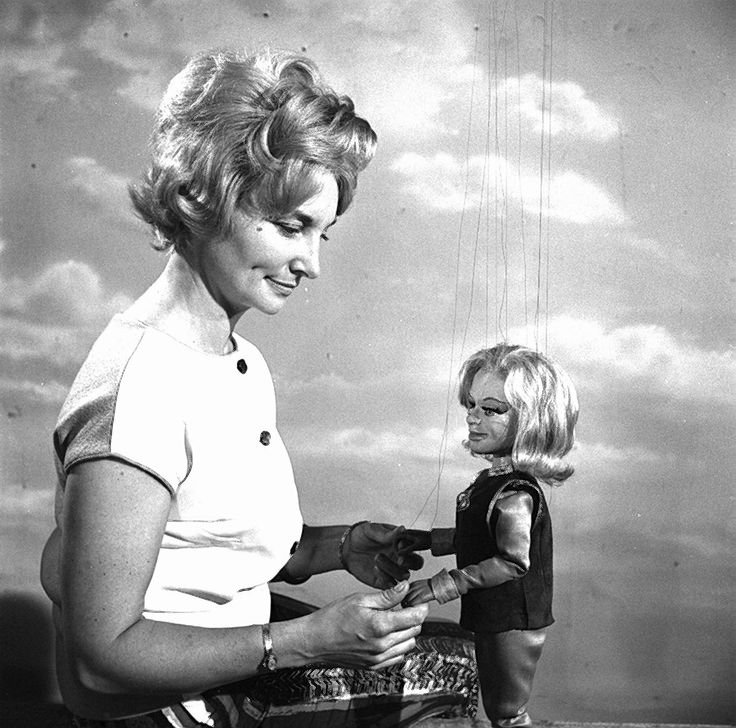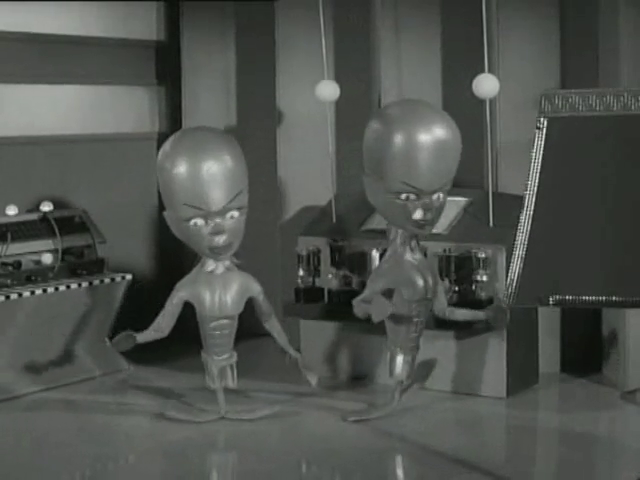[While you're reading this article, why not tune in to KGJ, Radio Galactic Journey, playing all the current hits: pop, rock, soul, folk, jazz, country — you might just hear a song from the album released by a new British band: The Beatles!]

By Ashley R. Pollard
March has finally brought a thaw in the weather. The snow is leaving my fair and pleasant land, and, by the good graces of the Traveler, I have had a metaphorical break from the cold. In the mail, I received a ticket to yesterday's cinematic premier of Come Fly With Me, a film about Jet Age romance in the airline business, with a note asking if I might provide a review.

I, of course, obliged. The viewing turned out to be not quite as glamorous experience as the one portrayed in the movie…if only because watching a preview in a basement cinema in Soho Square with lots of newspaper hacks from Fleet Street chain smoking cigarettes is hardly the epitome of a jet setting lifestyle.
Mind you, the movie can in no way be described as science fictional. It makes no attempt to portray the effects of technology on society. But it does a good job of painting a romantic picture of a future where jet travel is taken for granted.
And so, I spent a very pleasant afternoon watching (through the clouds of smoke) a frothy, light-hearted story that starts with Frankie Valli singing the eponymous song Come Fly With Me.
Despite beginning in New York, dominated by a largely American cast, this is a British production. It can be best be described as a light, romantic comedy, which doesn't stand up to close scrutiny. The story centers around three air hostesses, who are all looking for Mister Right—hence the film's subtitle: A Romantic Round the World Manhunt. The screenplay is an adaption of the book, Girl on a Wing, by Bernard Glemser, that was categorized as chick-lit, so assuming I have my American slang right, this makes Come Fly With Me a chick-flic.

Men beware — this may not be to your taste. However, as a date night movie it might be ideal.
Dolores Hart leads the billing playing Donna Stuart, who is a woman looking for a rich husband. She made her screen debut in the 1957 film Loving You as a love interest to Elvis Presley, and appeared with him again in the 1958 King Creole, which featured her first on screen kiss. Stuart's story arc revolves an on-then-off romance with a German Baron, who is not quite what he seems.

Pamela Tiffin plays Carol Brewster, who is the younger air hostess and comic relief. She is a Golden Globe nominated actress for her role in One, Two, Three, and as Most Promising Female Newcomer for Summer and Smoke. Brewster's romance with a dashing airline pilot is the core of the comedy in the movie. Ms. Tiffin manages to steal every scene she is in, and I imagine she will go far.
Lois Nettleton plays Hilda "Bergie" Bergstrom who is the older woman with a sad history, who despite her protestations is finally won over by a widower. Ms. Nettleton was a semifinalist in the 1948 Miss America competition, and I discovered she has also appeared in Captain Video, which is the first of two science fiction connections in this movie.
I don't know much about Captain Video, but it did have stories written by Isaac Asimov, James Blish, Arthur C. Clarke, Damon Knight, Cyril M. Kornbluth, Walter M. Miller, Robert Sheckley, and Jack Vance.
The main male romantic lead is played by Hugh O'Brien, a former United States Marine Corps officer, in the role of First Officer Ray Winsley who is the Co-Pilot of the plane a large portion of the story takes place on. Winsley can best be described as a scoundrel who, in this case, comes good and gets the girl. O'Brien is mostly known for his roles in Westerns, playing Wyatt Earp, but I discovered he also starred in the 1950 science fiction film Rocketship X-M (which also featured 1 TOBOR, the robot toy…)

Karl Malden's face was instantly recognizable; I've seen him in many films. He's probably most famous for his role in the 1954 film On the Waterfront, where he played a priest opposite Marlon Brando.
Here he plays a much lighter role, as a recently widowed Walter Lucas, who falls in love with Ms. Nettleton's character. This part of the story arc is very much in the tradition of mistaken assumptions. It is driven by his being identified as poor from flying in economy class, which disguises his multi-millionaire background. There's much comic interplay from this plot device.

Then there is Karlheinz Böhm, who plays the German Baron Franz Von Elzingen. Böhm is another recognizable star, who I first saw in the 1962 stop-motion Cinerama movie,T he Wonderful World of the Brothers Grimm, playing one of the brothers. Here he plays a Baron whose family has fallen on hard times, who is enticed/ forced into smuggling stolen diamonds.
This causes much trouble for his relationship with Ms. Hart's character. However, this film is far too light and airy to dwell on the darkness of international crime, so he hands himself in to attain true love.
Finally, it was a pleasure to see Richard Wattis, a well known British character actor who has appeared in such films as the 1954, The Belles of St. Trinian's, in a supporting role as an airline manager.
In sum, Come Fly With Me has a stellar cast. Also, the cinematography while at times routine, produces iconic images that encapsulates the jet set age, which I imagine will be copied in future films. As they say in Britain, worth a punt.

A final note: again, by no stretch of the imagination can Come Fly With Me be considered science fiction today. Nevertheless, one can't help but muse how the times have changed to make it thus.
For example, twenty years ago jet engines were the stuff of science fiction. A little over fifteen years ago, transatlantic flight was not only new, but also arduous with flights taken fifteen or more hours to cross the Atlantic.
Now, transatlantic flight has become routine, even if it is mostly for the wealthy. It is the stuff of current movies. It is something you and I could do…after pinching sufficient pence. Just you wait. In twenty years, they'll be making films about commercial space travel — and they will be documentaries.
